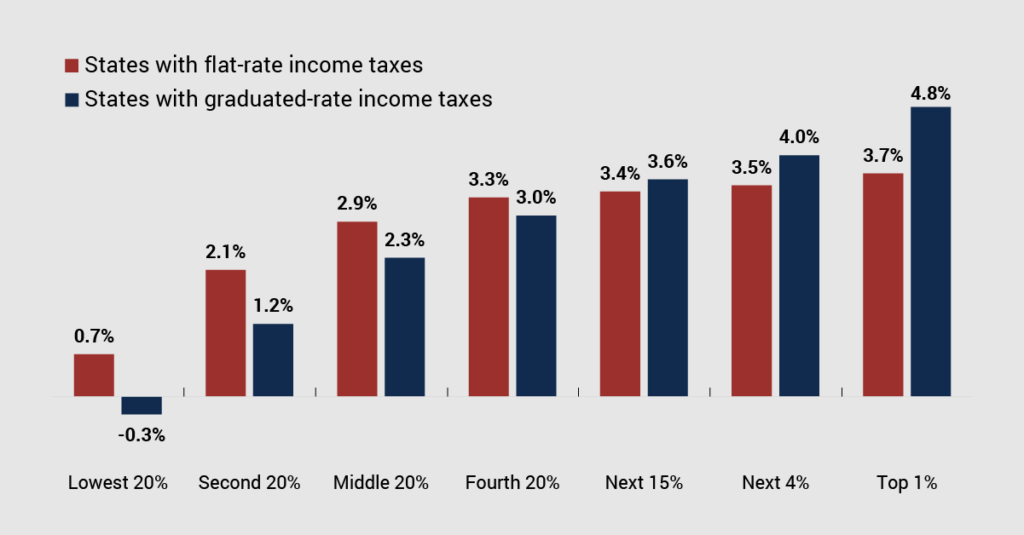While most states have a graduated rate income tax, some state lawmakers have recently become enamored with the idea of moving away from graduated rate personal income taxes and toward flat rate taxes instead.
But flat taxes create problems for ordinary families and let the wealthy off the hook. When faced with a flat income tax proposal policymakers and families should ask: Taxes will be lower for whom?
Last year, policymakers in Georgia, Idaho, Iowa, and Mississippi approved laws to flatten their personal income taxes. And so far this year, lawmakers in Louisiana, Nebraska, North Dakota, and Ohio are discussing proposals to shift their graduated income tax structures to flat rates.
These flat income taxes come with significant downsides and fail to deliver on many of the promises their proponents make, a new brief from the Institute on Taxation and Economic Policy explains.
Key findings:
One: Flat income taxes lead to regressive tax systems
States and localities raise most of their revenue through a mix of sales, excise, property, and income taxes. Among those levies, the income tax stands out as the only major tax that is structurally progressive. If lawmakers flatten the income tax, they are guaranteed an overall tax code that asks more, as a share of income, of low- and moderate-income families than it does of the wealthy.
Two: Flat income taxes are often higher for middle income and poor families
ITEP’s most recent comprehensive study of state and local tax codes found that all but the top 20 percent of households paid a higher tax rate on average in flat tax states than in graduated tax states.
The brief also finds that common claims made in support of flat taxes – that they will promote economic growth, strengthen small business, improve state budgeting, or simplify the tax system – are without merit.
“Flat taxes are all sizzle and no steak,” said Carl Davis, Research Director at ITEP and co-author of the brief. “They have some surface appeal but once you dig a little deeper, it doesn’t take long to see that they just don’t work for most of us. This is a policy that’s tailormade with the interests of the wealthy in mind.”




